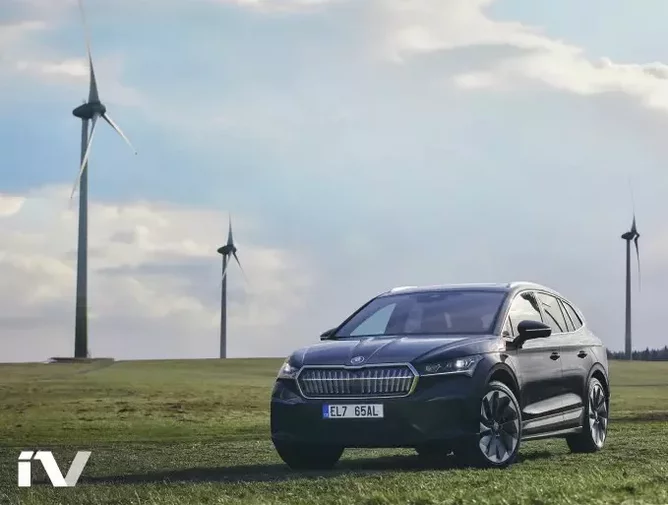Skoda Announces ENYAQ iV has no Carbon Footprint

There are some ambitious talks coming from the automotive company, Skoda, which has announced that its EV model—the Skoda ENYAQ iV—has no carbon footprint. The company has released some information about how it has achieved the vehicle’s carbon-neutral supply chain.
Creating a Carbon-Neutral Production Line
All of the Skoda production plants in the Czech Republic are on track to become carbon-neutral by the end of the decade. This will be achieved by switching to clean heating fuels and obtaining electricity from renewable sources. The carmaker has already turned its Vrchlabí plant into a carbon-neutral facility, which was completed at the end of 2020.

The company’s Project Manager, Peter Juhasz, has discussed Skoda’s efforts to ‘clean up’ the production of the vehicle. ‘We are working to have carbon-free production through a series of measures, such as the introduction of an energy management system, optimising ventilation, closing heating circuits that are no longer in use, replacing and regulating lighting or installing smart HVAC controls and, temporarily, buying emission offsets. VW Group decided last year that all-electric cars on the MEB platform will be CO2 neutral when they are handed over to the customer, which we guarantee with certification from TÜV NORD CERT’, say Juhasz.
Despite the notion that electric cars are emissions-free, it is difficult for the mass-production of cars to be truly carbon-free. Therefore, the company has discussed further measures to achieve this goal. Skoda is currently in talks about other procedures to offset the emissions of the production process. ‘This is about emissions that are released into the air before the car gets to the showroom and is charged for the first time – in other words, components manufactured by suppliers and then transported to the factory; assembly at our factory; and delivering the finished cars by rail or road to dealers. We offset all of this for the customer by purchasing CO2 credits (certificates), which guarantees that our electric cars actually have a carbon-neutral footprint in the showroom’, says Juhasz.
To achieve this goal, Skoda is currently working out how to reduce the carbon output with the supply chain, which includes production and logistics. The vision is to adapt to using 100% renewable energy for these processes or cut out processes that are emissions-intensive. An example of this being the successful installation of a photovoltaic system at the company’s service centre in Kosmonosy in November 2020. The system covers more than 2,200 square metres and is capable of generating more than 450MWh of renewable electricity per year.
For more energy insights, check out the latest issue of Energy Digital Magazine.






